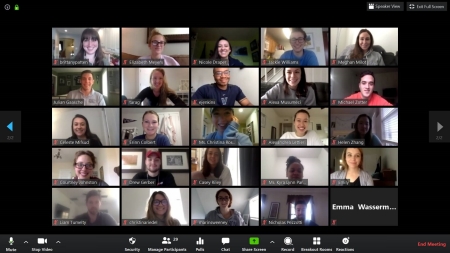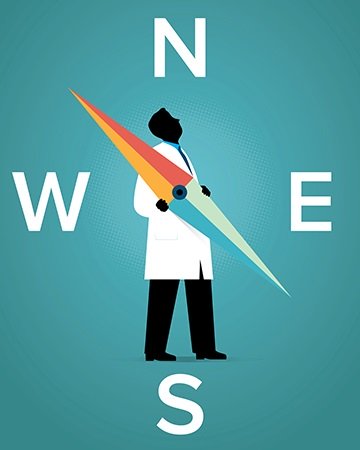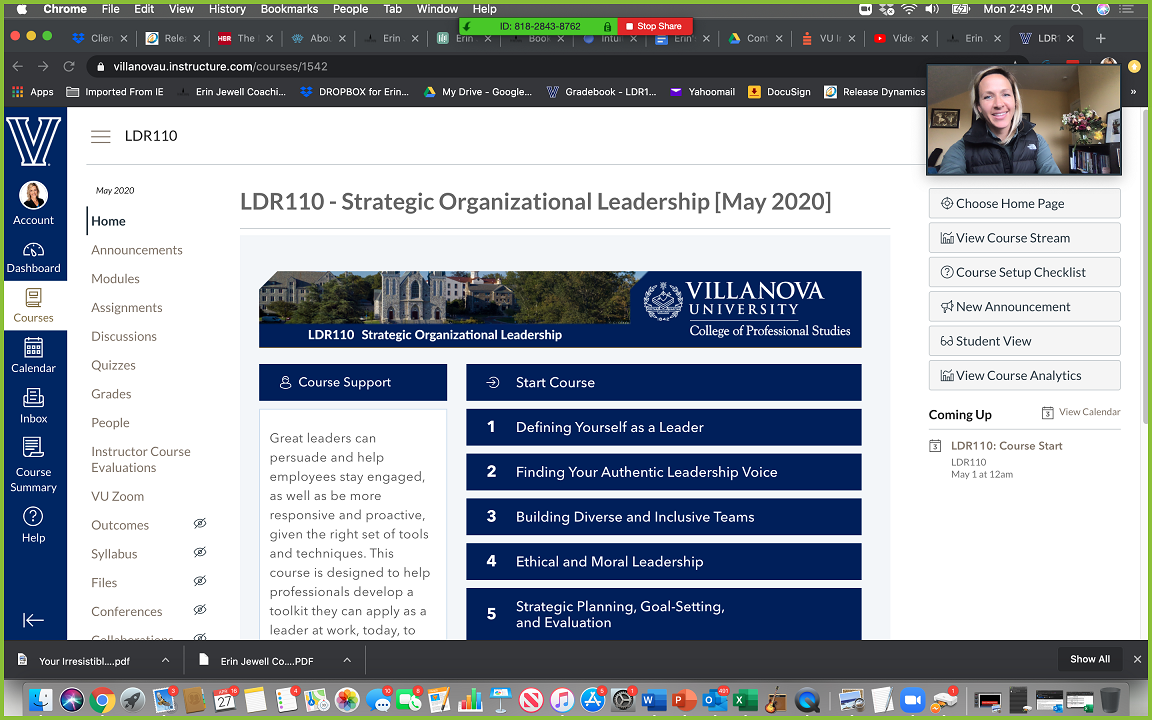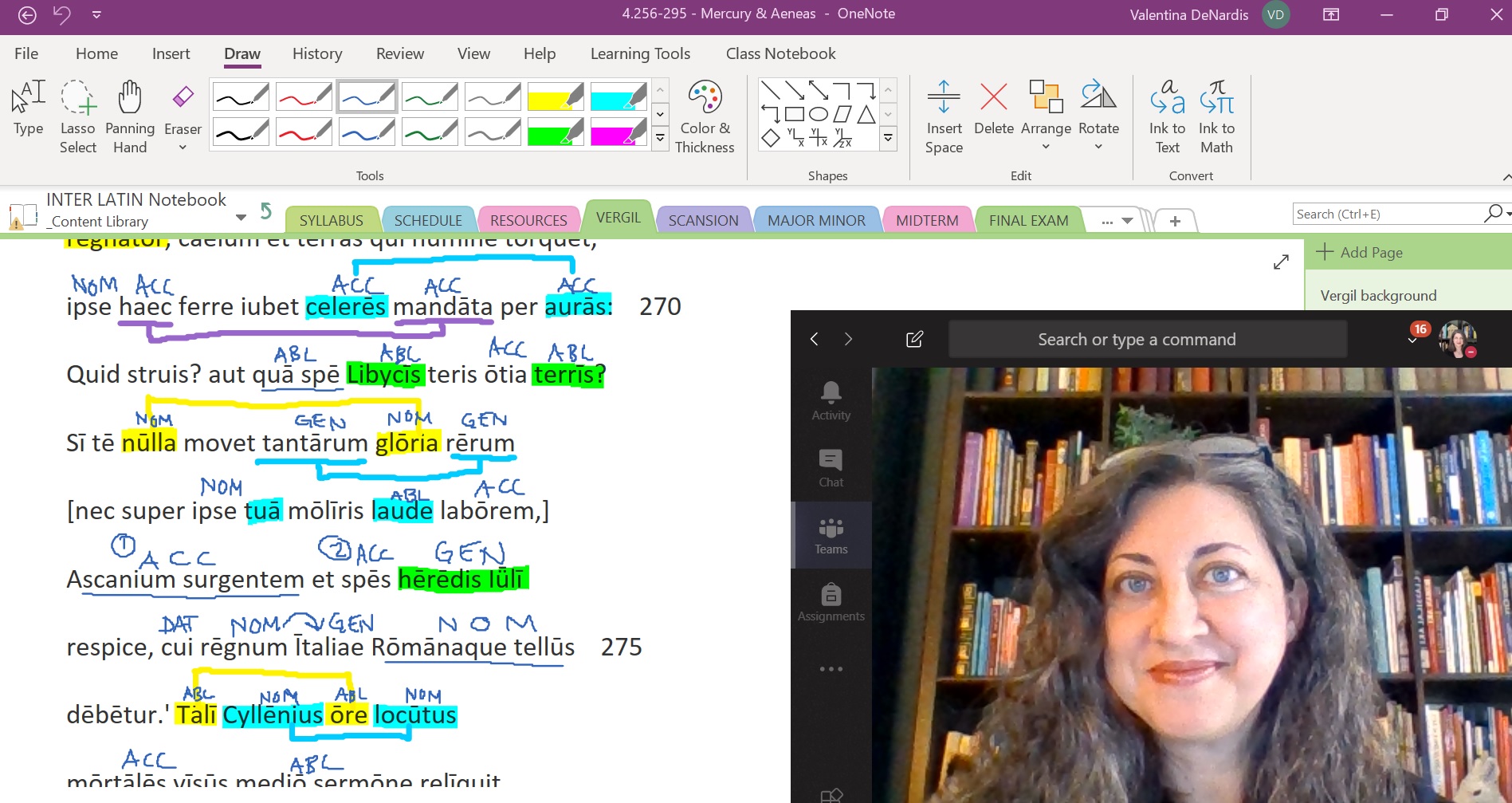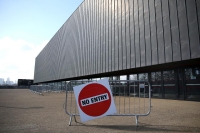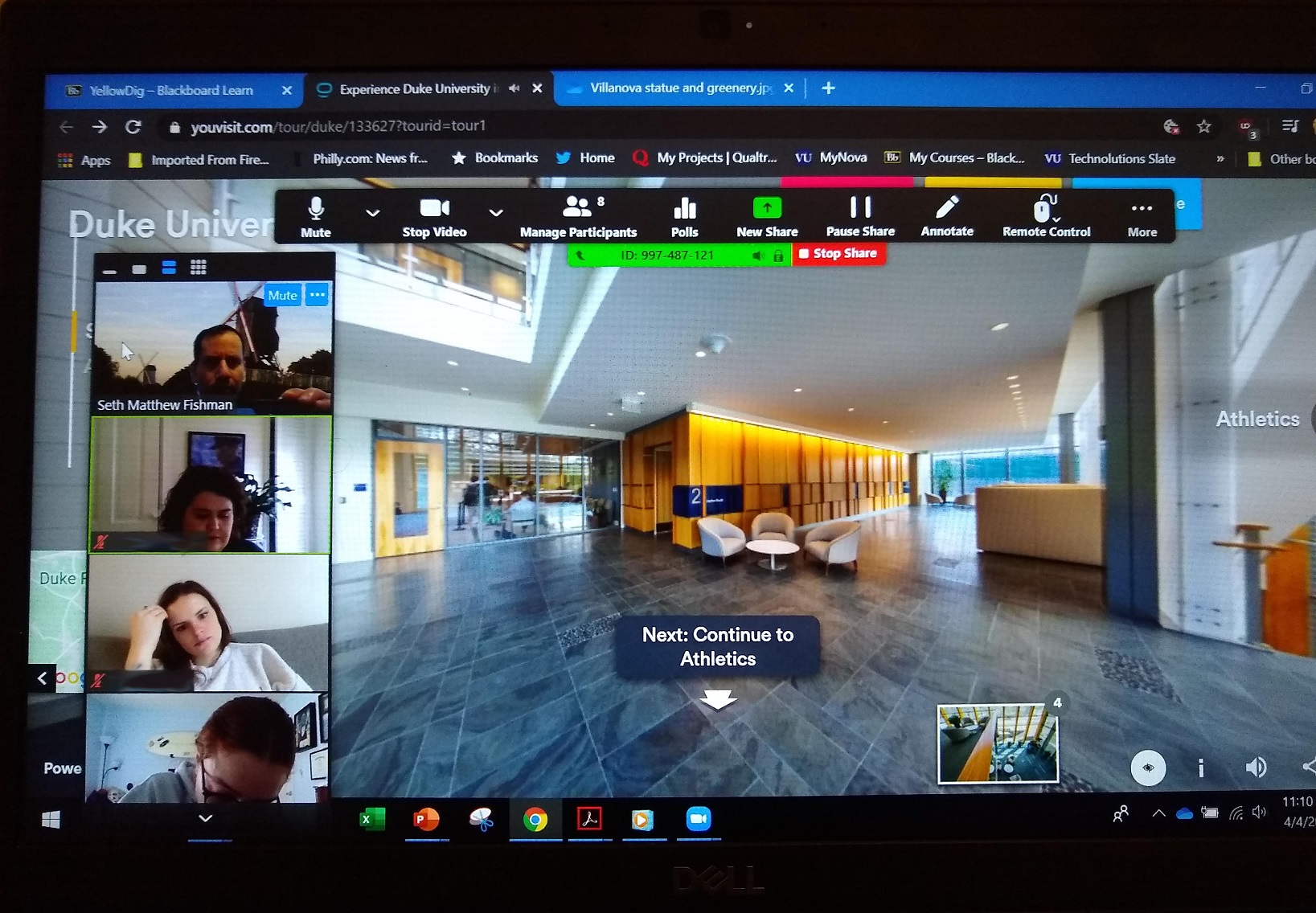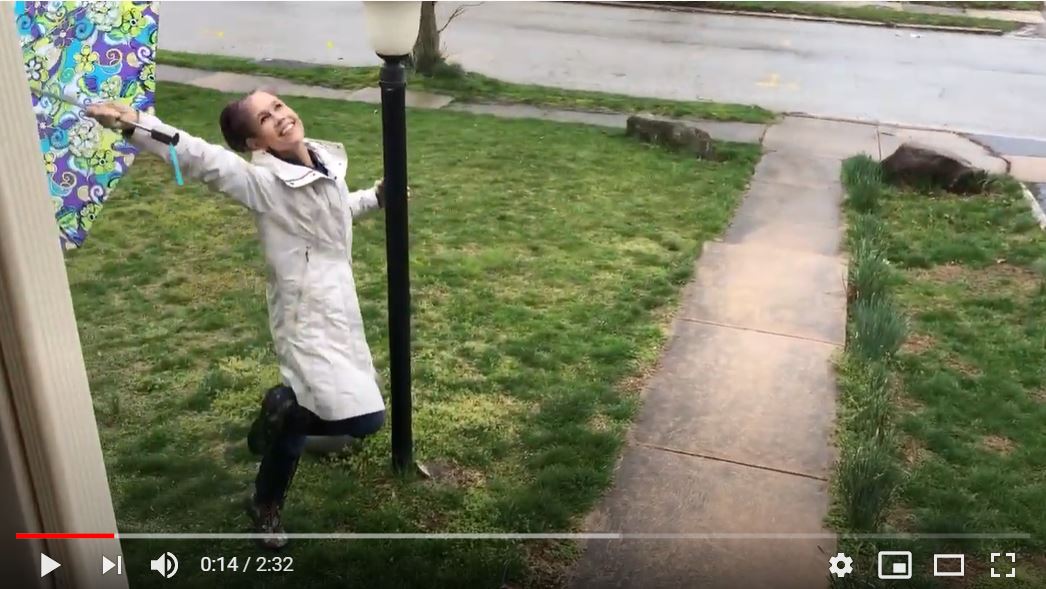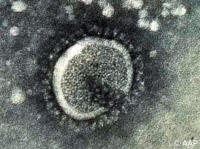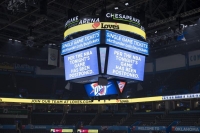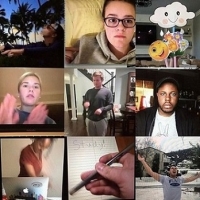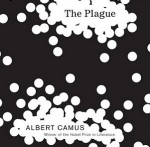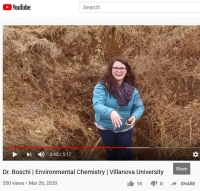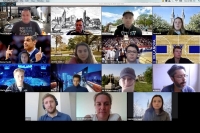Three guest speakers with healthcare and industry backgrounds joined Assistant Professor of the Practice Diane Ellis' Nursing Leadership and Management in Healthcare course for seniors. “It was academe as usual until the COVID-19 pandemic struck,” Ellis said. “I had asked my guest speakers initially to address quality and safety as it relates to patient outcomes in healthcare. But when COVID-19 became our daily way of living and healthcare workers were now being referred to as heroes, it only made sense to have them address their unique and real life experiences as it relates to this current pandemic.”
A nurse educator in Surgical Services at Penn State Health St. Joseph Medical Center, Shelley Hickey, RN, MSN (VU '07) is a former Fitzpatrick College of Nursing (FCN) faculty member, and the first speaker that day. She was able to connect real-life scenarios that were occurring daily at her hospital and hospitals worldwide into the nursing leadership and management concepts that Ellis was teaching. One student commented that Hickey’s lecture “was valuable because we had to think through the problems, we had to imagine what the situation was in terms of staffing and resource needs and how we could incorporate what was already available in the hospital. It brought home the complexity of this current situation.”
Lydia Kim, RN, (VU '14) is a clinical nurse working on a COVID-19 unit at Penn Presbyterian Medical Center in Philadelphia, and is also a graduate student at FCN. Kim discussed nurse residency programs in the current healthcare situation, along with concepts such as teamwork, collegiality, emotional intelligence and care of self as it relates to a new nurse transitioning into the acute care setting, especially during a pandemic such as COVID -19. Kim told the class how important networking in healthcare after graduation is, sharing experiences of networking on current research projects at the FCN, and opportunities available to her as a graduate nursing student at Villanova. Students remarked that “She helped us see our life in a few months or years, and how to stay calm in a storm, and to say yes to opportunities even if you don't know where they will take you.”
Hugh M. Davis, Ph.D. (VU ‘85), a former faculty member in the chemistry department, has more than 35 years of experience as a scientist and as a research and development executive in the biotech and pharmaceutical industries. Davis addressed several areas as they relate to COVID-19, such as the uniqueness of SARS CoV-2 genome and implications and concerns; the ethics of conducting gain-of-function tests with viruses; and vaccine, therapeutic, and diagnostic efforts and challenges. One senior said, “The things that I really appreciated about Dr. Davis's presentation were that he supplied us with real time information, taught us where to find it and most impressively, presented the articles in a non-biased, factual manner. Dr. Davis's impressive bio didn't prohibit him from articulating his appreciation for and pride in the nursing profession, made even more special when he noted his daughter is a nurse. This was a really spectacular lecture because it gave us such unique insight into how virologists are approaching a new virus -- all from a proud Villanova alum."

